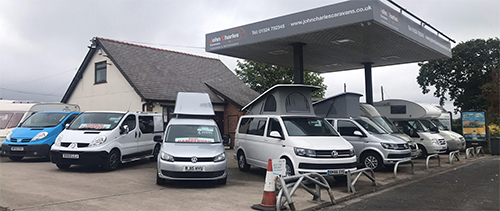We are pleased to announce we will re-open our premises including our shop & Gas sales on Monday 12th April. Stay safe.
Author: burlinghamcarav
Temporary closure due to Covid 19
We remain temporarily closed due to Government guidelines and the fight against coronavirus until further notice. This could be until late Feb or March, we will wait and see. Stay Safe.
Viewing by VIP appointment only, Our shop and gas sales remains closed.
We would like to thank all our customers for your continued support and reviews we wish you all well, please stay alert and we look forward to seeing you all soon.
With many thanks,
The History of Burlingham Caravans. Serving the Leisure Industry in Garstang since 1938.
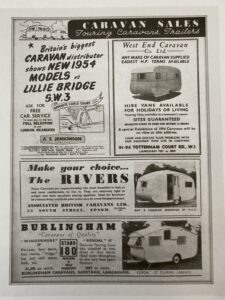
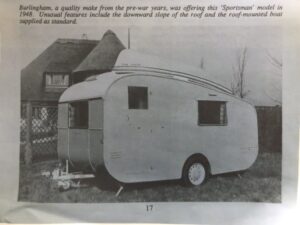
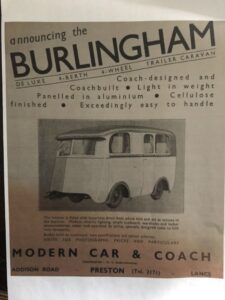
Burlingham is steeped in history dating back to 1876 coach building in Norfolk and Huddersfield.
It moved to Blackpool in 1928 onto Bloomfield Road and Bond Street. Blackpool was an ideal place to coach build with the advantages of highly seasonal trade.
General Coachbuilding was the initial purpose of Mr Burlingham’s business but in the early 1930’s he built a number of caravans special order. A production example was exhibited at the 1934 Olympia Motor Show.
By the second half of the decade he was producing a range of extremely elegant models named after the British Lakes.
By 1938 the manufacturing was based in Brook Street, Preston and a display site at the nearby Garstang By Pass where the present site in located today.
Herbet Victor Burlingham continued his interest in caravans and still owned the first caravan he built up to his death in 1959 at age 82. Still to this date nobody knows where this caravan and another three prized Burlingham Caravans went.
You can see still a Burlingham Langdale Caravan at the Lakeland Museum.
https://www.lakelandmotormuseum.co.uk/…/c1948-burlingham-la…
Coronavirus Temporary closure
Temporary closure. Our live chat is open 24/7
Our shop and premises are now closed to the public until further notice due to the coronavirus guidelines.
-
We have been serving leisure customers since 1938 and we look forward to continuing for many years to come. We will be ready for all your leisure needs when we re-open.Virtual Showroom
You can browse our stock, ask questions through our live chat and ask to reserve a caravan until we open. Then we will contact you to arrange you to view the caravan, discuss all the details including your requirements and arrange collection.
We wish you all well, please stay safe and we look forward to seeing you all soon
Visiting us
We would like to thank all our customers for your continued support and reviews.
- Although we are in unprecedented times we are committed to give you all your Leisure needs for the forthcoming season to enjoy the freedom and space in your caravan.
- Hygiene and cleanliness is always something we prioritise for our customers, staff & suppliers. That aside we have been taking extra precautions to ensure the safety of all.
- All our products are fully clean inside and out regularly and before you collect.
- In light of government recommendations-for those people visiting us we are operating a social distance policy, you are free to browse our stock at your own free will, prioritising your safety and we are offering these additional services:-
- You can Browse, Chat, watch and purchase from the comfort of your home.
- We have reduced our face to face contact and will email all required paperwork.
- Free delivery within 40 miles radius if required when you buy a retail caravan.
- Free delivery and collection for our service or repair customers within a 20 mile radius if required.
- Video presentations of our stock sent by email, WhatsApp and our social media channels by request.
- Video of how to use your purchased caravan to minimise any physical contact when you collect or we deliver
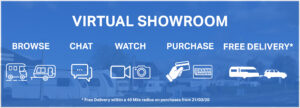
Leisure Batteries
What does a Leisure Battery do?
Leisure batteries are needed for the running of your caravan or motorhomes 12v electrics. This includes internal lights, controlling mains appliances (although most appliances work with 240v hook up, they are normally controlled by a 12v controller), 12v sockets and Motormovers!
Do I need a Leisure Battery if I am plugged into mains electric?
Although modern caravans have 12v chargers in the caravans, the secondary function of a leisure battery, aside from powering appliances, is to correct any irregularities in the power supply, keeping you and your appliances safe. Almost all UK manufactures advise that you should have a battery in connected when a charger is on. If not this can burnout the charger and have a very negative effect on your caravan.
Is there a difference between Car Batteries and a Leisure Battery?
Yes there is a very big difference between a car battery and a leisure battery as they both do very different jobs. A car battery is designed to provide a burst of energy to start the engine when required, whereas a leisure battery will release a lower level of energy over a prolonged period of time in order to power appliances. Think if you leave your lights on your car for half an hour to an hour, the battery would be dead. Not very practical for a caravan that uses so much 12v power.
What Size battery do I need?
Do use your caravan away from mains electric? Do you use a Motor-mover? are you always connected to mains electric? The size of battery you need really depends on how you use it.
Considering the increased number of electronic gadgets and improved technology used in all aspects of our lives nowadays, the National Caravan Council (NCC) has introduced a Verified Leisure Battery Scheme to give caravan and motorhome owners peace of mind when purchasing a new leisure battery.
The NCC categories batteries into 3 Classes

Category A is for batteries with a higher storage capacity for people who frequently use their touring caravan or motorhome away from an electrical hook-up:
If you are using your caravan for rallying and do not use an electric hook up, a Class-A battery is the battery for you. This is110amp and above. Although a lot of people needing this sort of battery, will get a solar panel fitted.

Category B batteries are aimed at those who frequently use sites with hook-up facilities, but require a greater battery capacity to operate devices such as motor movers:
If you use your caravan on sites but sometimes on a site without electric for a night or have a motor mover that is used, a Class-B battery will do the job for you. This is normally 90amp to 110amp.

Category C batteries are for users that require a lower capacity battery to cover basic operation of their habitation equipment for short periods away from an electrical hook-up:
So in short, if you are using your caravan on a seasonal pitch or always use mains electric and do not have a motor mover, a Class-C battery will be fine. This is normally 75amp to 86amp
How to tell if a battery is NCC approved?
You cannot simply judge a battery by its name, as all manufacturers make a range of batteries of different capacity, durability and price to suit myriad applications. Manufacturers of verified batteries are entitled and encouraged to display the NCC classification on them at the point of sale.
What batteries do we sell at Burlingham Caravans?
Burlinghams stock Numax batteries from 75amp to 105amp and can order larger sizes! All Numax Class-B batteries come with a 3 year guarantee and Numax Class-C come with 2 years!
Ask in-store if you are unsure what battery you need!
Caravanning this winter!
Winter Caravanning
Winter caravanning
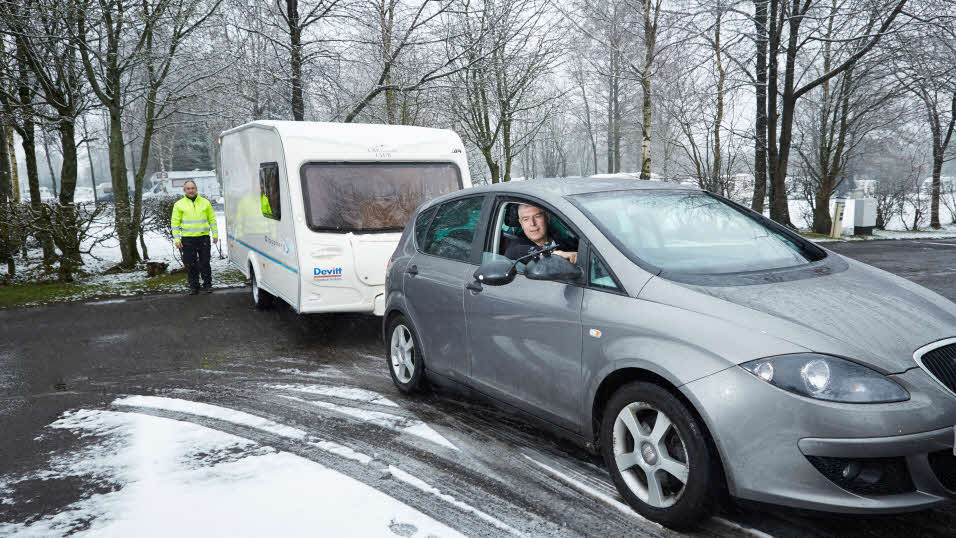
Excellent insulation and modern heating systems mean that caravanning is a year-round activity, with many sites as busy at Christmas and New Year as they are in mid-summer. Check out these handy tips to stay comfortable on site, no matter what the temperature is outside.
Many caravan sites have extended their opening season or remain open all year round, where you can enjoy heated toilet/shower blocks, laundry rooms, mains electric hook ups and often hardstanding pitches.
With the right preparation, caravanning can be enjoyed all year round, and there is something quite special about the silence of a snow-covered Certificated Location when snug inside a caravan!
Which gas should I use?
Butane is ineffective as temperatures fall to around freezing (0*C) so the winter caravanner should switch to propane. Most modern appliances work equally well on butane or propane, so all that is required is a change of regulator. Some equipment with high off-take rates, like central heating systems, will only work effectively on propane. If it is more convenient, propane can be used all year round – there is no need to switch back to butane for the summer.
Fresh water
In below-zero conditions, your outside water container may well partially freeze over so you will need a second container inside the caravan you can transfer your water pump to.
Many caravans now incorporate on-board water tanks – or have the capacity to have them retro-fitted – so check your handbook to see if this applies to your model.
There are currently no ‘anti-freeze’ additives on the market that are recommended for use in fresh water supplies.
Waste water
To prevent freezing of the waste tanks or toilet, add car-type anti-freeze. Propylene glycol is most suitable, being less toxic, but it can be difficult to find.
Heating
Most caravans now have balanced flue space heaters, which should be safe to leave on all night. However, there is a very small risk of wind-blown rubbish or snow blocking the flue and creating problems and so we don’t recommend you use these.
LPG heaters without flues must not be left on if all the occupants are sleeping (day or night). If hooking-up to mains, a thermostatically controlled fan heater (1 kW max. is should prevent the interior temperature falling below a certain level.
An increasing number of caravans now have central heating systems, which for prolonged winter caravanning, are ideal. Most systems can be added to a caravan but must be professionally installed for safety.
Water heaters are unlikely to freeze whilst the caravan is occupied, but for travelling in near zero conditions and if the caravan is left unoccupied for any length of time, it must be drained down to prevent frost damage.
Which towcar?
For regular winter caravanners, a four-wheel drive car or all-terrain vehicle is well worth considering. Mud and Snow tyres often improve traction and can be used all year round. For very slippery sites, snow chains might be needed. For more advice, consult our guide on buying a towcar.
Top 10 winter caravanning tips
- A porch awning is invaluable for storing wellington boots and hanging waterproofs up to dry, but if you intend to stay on hardstanding pitches, or even frozen ones, you may not be able to peg out. Extra strong steel pegs are advised.
- If snow is on the ground, regularly lift and shake the mains cable or it will become permanently embedded.
- Regularly clear any drifting snow from underneath the caravan, to ensure air vents and appliance flues are kept free.
- Despite the temptation to block off permanent vents – do not do it, it could be dangerous. Try to site the caravan so that fridge vents are away from the prevailing wind.
- Good quality sleeping bags or a high-tog quilt are advisable and avoid the need to have a heater on all night.
- As water freezes from the top down, insulate your water container with a ‘hat’ and lag the water pipe with foam pipe.
- Condensation can be a problem in winter, so moisture-absorbing crystals (available from DIY stores) are useful or even consider a portable dehumidifier.
- Continental caravans generally have excellent standards of insulation and refinements like underfloor heating that make them ideally suited to winter caravanning.
- With extra appliances in use, ensure adequate fire safety equipment is carried on board – see our leaflet on the subject.
- Keep moving parts on the caravan, like steadies, jockey wheel and handbrake well-oiled to prevent seizing. If temperatures are likely to fall below zero, make sure the caravan is on the level and securely chocked and leave the handbrake off – otherwise the brakes might seize on.
(article courtesy of the Caravan Club)
Coupling your caravan
Coupling your car and caravan
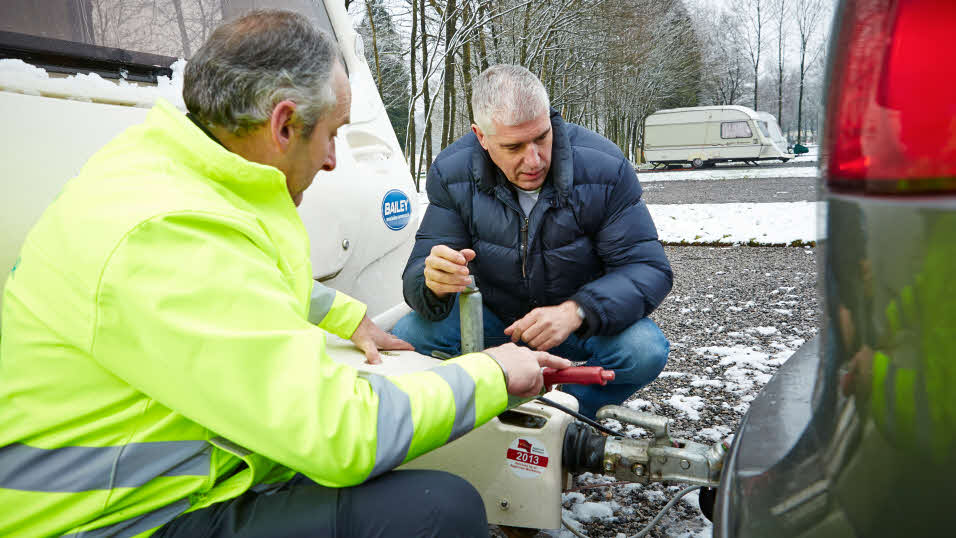
Coupling a caravan to a car is quite simple if you follow our simple procedure, you’ll get it right every time!
Always work carefully, safely and methodically. Use the same routine every time you hitch up. Always double check and do not rush.
Before starting the manoeuvre, make sure that both the caravan and the towcar are under control with the car handbrake applied and the caravan hitch brake on.
Always read the manufacturer’s instructions before coupling for the first time and if in doubt ask your dealer.
The driver should always check that coupling has been completed successfully.
(courtesy: The Caravan Club)
Looking after your caravan this winter
Caravan vents should be left uncovered to provide adequate air circulation inside the caravan, however if your caravan is left in an exposed or salty location, the vents on the side of the prevailing wind can be closed off for winter. If you have regular access to your caravan you could place some moisture absorbing crystals (available in our shop) in cupboards, under beds, etc to reduce the risk of condensation, but these do require frequent changing. You could also put a low wattage heater in your caravan to minimise the damp and condensation. If possible remove the soft furnishings and store in a warm, dry place at home.
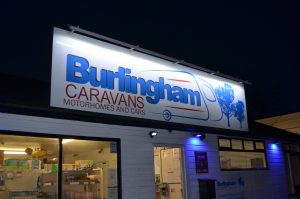
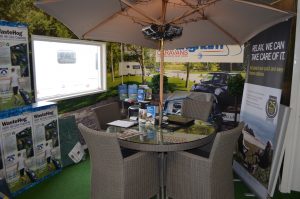
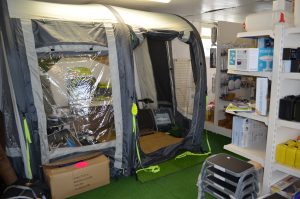
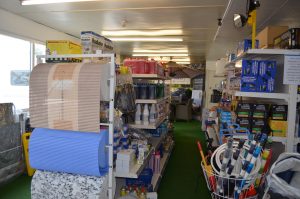
Walls and ceilings should be wiped over with a mild anti-bacterial solution eg. Dettox or something similar. Cupboards should be emptied, cleaned and vacuumed out. Small doors can be left ajar to assist ventilation, but larger doors should be closed as they can warp.

 Bailey ranger 500/5
Bailey ranger 500/5

